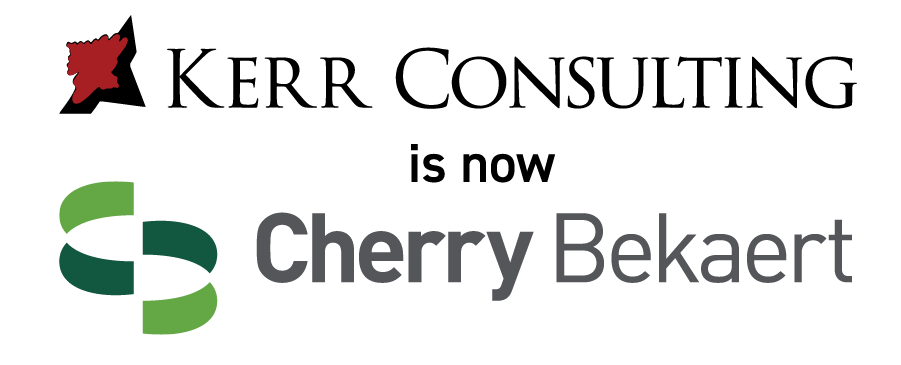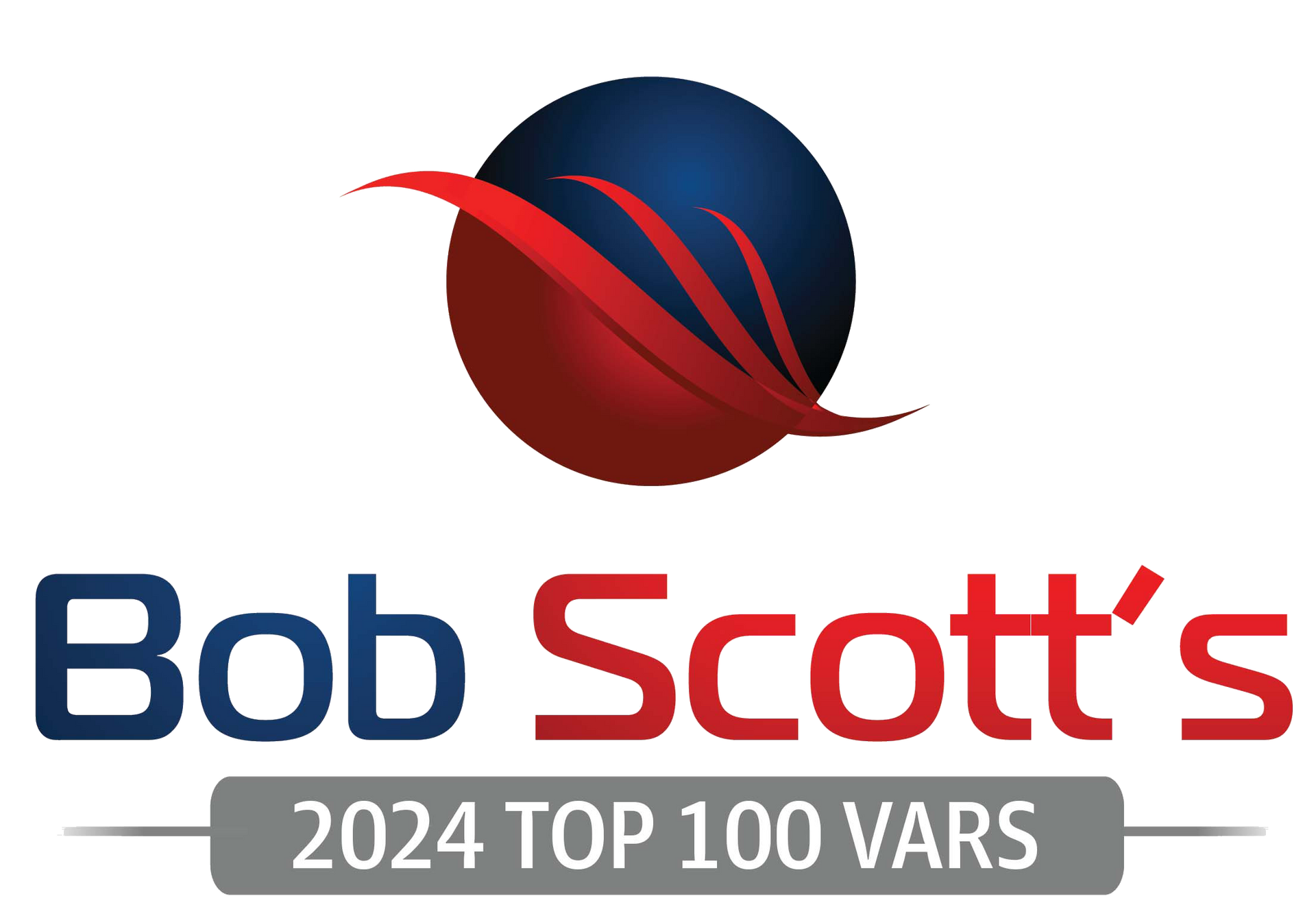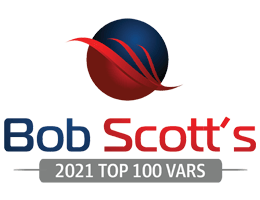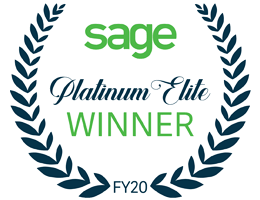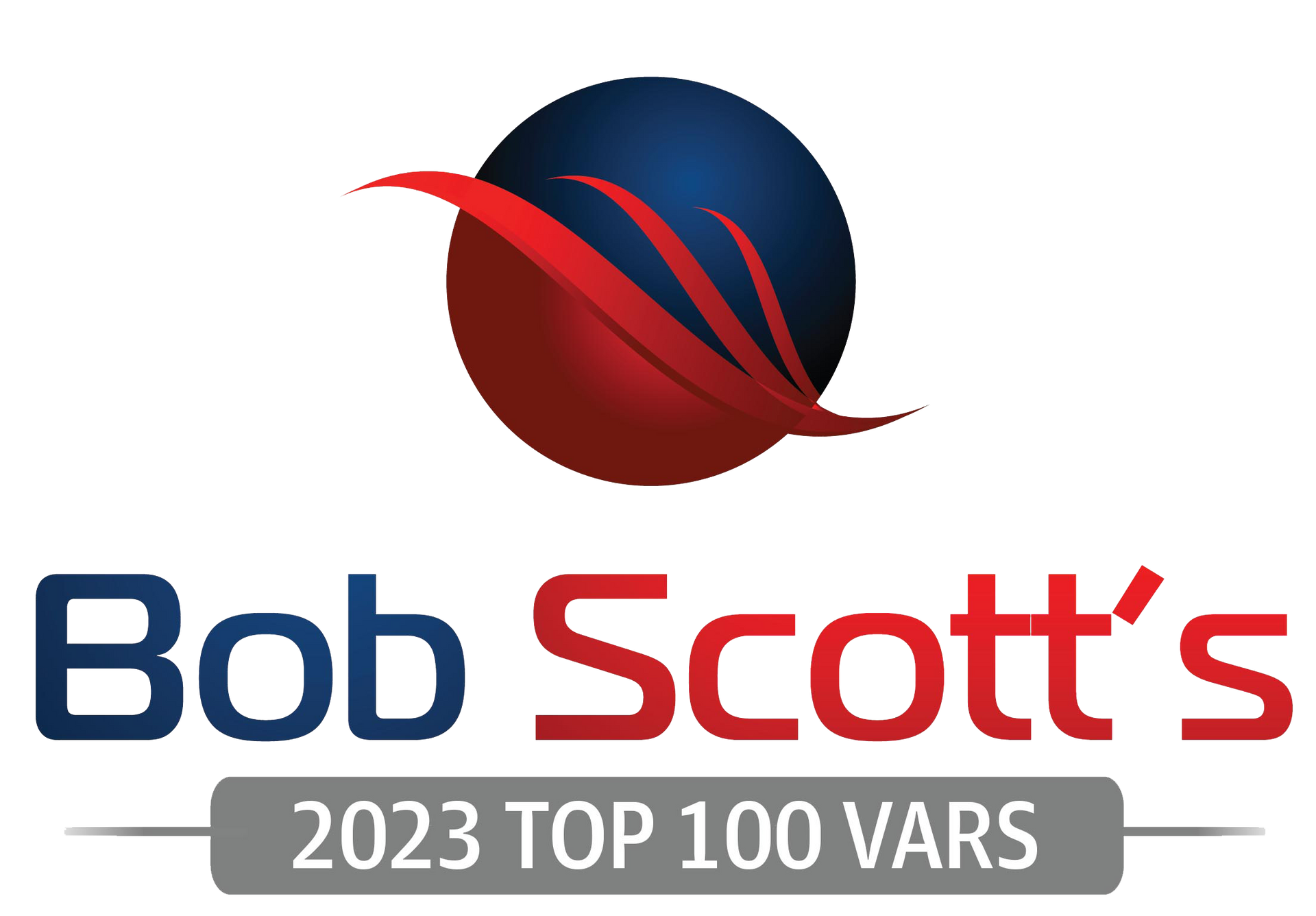How Sage Software Transforms the Food and Beverage Industry: A Complete Guide

The food and beverage industry is a complex and dynamic sector. It's characterized by unique challenges such as perishable inventory, stringent safety regulations, and intricate supply chains.
To navigate these challenges, businesses need robust and flexible solutions. This is where Sage Software comes into play. Sage Software is a leading provider of enterprise resource planning (ERP) solutions, tailored to various industries, including food and beverage.
The transformative impact of Sage Software on the food and beverage industry is profound. It offers specialized features that address the sector's specific needs, optimizing operations, improving efficiency, and driving growth.
This comprehensive guide aims to shed light on how Sage Software revolutionizes the food and beverage industry. Whether you're a CEO, CTO, Operations Manager, or an IT Manager, this guide will provide valuable insights.
We'll delve into the key features of Sage Software, its role in the industry, and how it addresses the unique challenges. We'll also share success stories of businesses that have reaped the benefits of implementing Sage Software.
Join us as we explore how Sage Software is transforming the food and beverage industry, one operation at a time.
Understanding the Food and Beverage Industry's Unique Challenges
The food and beverage industry is unlike any other. It's a sector that's constantly evolving, driven by changing consumer trends, technological advancements, and regulatory shifts.
How ERP Improves Food Safety
One of the most significant challenges is managing perishable inventory. Food and beverage products often have a short shelf life, requiring efficient inventory management to minimize waste and maximize profitability.
Another challenge is compliance with stringent food safety regulations. Businesses must ensure traceability of ingredients, adhere to hygiene standards, and manage allergen information. Non-compliance can lead to hefty fines, product recalls, and damage to brand reputation.
The industry also grapples with complex supply chains. From sourcing raw materials to delivering finished products, businesses must coordinate multiple stages, often across different geographical locations.
Here are some of the unique challenges faced by the food and beverage industry:
- Managing perishable inventory
- Ensuring compliance with food safety regulations
- Navigating complex supply chains
- Adapting to changing consumer trends
- Implementing sustainable practices
These challenges require specialized solutions. In the next section, we'll explore how Sage Software provides these solutions, transforming the way the food and beverage industry operates.
The Role of ERP in the Food and Beverage Industry
Enterprise Resource Planning (ERP) systems play a crucial role in the food and beverage industry. They provide a centralized platform for managing various business operations, from procurement and production to sales and customer service.
Sage X3 Software, a leading provider of ERP solutions such as ERP for food and beverage industry, offers specialized features tailored to the needs of food and beverage manufacturers and distributors. These features address the unique challenges of the industry, helping businesses optimize operations, improve efficiency, and drive growth.
In the following sections, we'll delve into the key features of Sage Software for the food and beverage industry and explore how they transform business operations.
Key Features of Sage Software for Food and Beverage
Sage Software offers a comprehensive suite of features designed to meet the specific needs of the food and beverage industry. These features span across various aspects of business operations, providing an integrated solution for managing the complexities of food and beverage manufacturing and distribution.
Here are some of the key features of Sage Software for the food and beverage industry:
- Inventory management and reduced waste
- Compliance and food safety standards
- Real-time data and enhanced decision-making
- Process automation and productivity
Let's take a closer look at each of these features.
Best ERP for Reducing Food Waste
Effective inventory management is crucial in the food and beverage industry. With Sage Software, businesses can gain real-time visibility into their inventory levels, helping them manage perishable goods more efficiently.
This feature allows businesses to track inventory in real-time, predict demand, and plan production accordingly. As a result, they can reduce waste, optimize storage space, and improve cash flow.
Real-time Data and Enhanced Decision-Making
In today's fast-paced business environment, having access to real-time data is essential. Sage Software provides real-time analytics and reporting, enabling businesses to make informed decisions quickly.
With this feature, businesses can monitor key performance indicators (KPIs), track sales trends, and analyze customer behavior. This leads to enhanced decision-making, improved operational efficiency, and increased profitability.
Process Automation and Productivity
Process automation is another key feature of Sage Software. By automating routine tasks, businesses can reduce manual errors, increase productivity, and free up time for more strategic activities.
From order processing and invoicing to production scheduling and delivery, Sage Software automates various processes across the supply chain. This leads to streamlined operations, improved accuracy, and higher productivity.
Compliance and Food Safety Standards
Compliance with food safety standards is a top priority for food and beverage businesses. Sage Software helps ensure compliance by providing features for traceability, allergen management, and quality control.
With these features, businesses can track ingredients from farm to fork, manage allergen information, and ensure the quality of their products. This not only helps them comply with regulations but also builds trust with consumers.
How Sage X3 Helps Food and Beverage Businesses Achieve Compliance and Streamline Operations
For food and beverage companies, managing perishable inventory and ensuring compliance with strict regulations like the FDA’s food safety rules can be overwhelming. With Sage X3, businesses can track ingredients in real-time, manage expiration dates, and ensure traceability from farm to fork. This reduces risks related to recalls and contamination, which, according to one report, costs food businesses an average of $10 million per incident in direct costs alone.
Choosing the Right Sage Solution for Your Business
Selecting the right ERP solution is a critical decision for any business. It requires a thorough understanding of your business needs, operational challenges, and growth objectives.
Sage Software offers a range of ERP solutions, each designed to cater to different business sizes and industry requirements. Whether you're a small food manufacturer or a large beverage distributor, Sage has a solution that can be tailored to your specific needs.
Integration with Other Systems
One of the key strengths of Sage Software is its ability to integrate with other systems. This includes Customer Relationship Management (CRM) systems, Human Resource Management (HRM) systems, and other third-party applications.
This seamless integration allows for a unified view of business operations, improving data accuracy, enhancing collaboration, and enabling more informed decision-making. It also eliminates the need for manual data entry, reducing errors and saving time.
Scalability and Global Operations
Sage Software is designed to grow with your business. Its scalable solutions can accommodate an increase in users, products, and locations without compromising performance.
Moreover, Sage supports multi-location and multi-currency operations, making it an ideal choice for businesses with a global presence. It also offers features for managing international trade and compliance with global regulations.
| ERP Solution | Specialization in Food & Beverage | Inventory Management | Compliance & Quality Control | Customization & Flexibility | Scalability & Global Operations |
|---|---|---|---|---|---|
| Sage X3 | Strong focus on food safety, ingredient traceability, and perishable goods management | Advanced real-time tracking, lot management, expiration tracking | Excellent compliance with food safety, allergen tracking, batch control | High flexibility with extensive customization | Highly scalable, suitable for growing businesses, multi-currency, multi-location |
| SAP S/4HANA | Strong for large enterprises, can handle complex global operations | Powerful but complex, includes shop floor control and global supply chain management | Very robust, but steeper learning curve and higher cost | Highly customizable but resource-intensive to implement | Best for large enterprises with multi-national operations |
| NetSuite ERP | Suitable for mid-sized food and beverage companies | Good multi-location tracking, but less specialized for perishables compared to Sage X3 | Basic compliance, lacks deep food-specific tools like allergen tracking | Easy to use with cloud-native architecture, less customizable than Sage | Scalable for mid-sized businesses, flexible cloud deployment |
| Microsoft Dynamics 365 | Less focus on food-specific features, strong general ERP solution | Good multi-warehouse and inventory visibility | Basic food safety and compliance tools, less food-industry specific | Strong integration with Microsoft ecosystem but less flexible than Sage X3 | Highly scalable, good for businesses using Microsoft products globally |

Key Takeaways from the Comparison:
- Sage X3 leads in inventory management, compliance, and quality control for food and beverage businesses, offering specific features like allergen tracking and expiration management.
- SAP S/4HANA is best suited for large enterprises with global operations, but its complexity and cost make it more challenging for smaller or mid-sized businesses.
- NetSuite ERP is a good option for mid-sized businesses needing a cloud-native solution with solid, but not food-specific, inventory management.
- Microsoft Dynamics 365 excels at integration with the broader Microsoft ecosystem and is highly scalable but lacks the depth in food-specific features that Sage X3 provides.
Cloud-based ERP for Food Industry
In today's digital age, having a cloud-based ERP solution is a significant advantage. Sage Software offers cloud-based options that provide flexibility and accessibility.
With a cloud-based Sage solution, you can access your ERP system from anywhere, at any time. This is particularly beneficial for businesses with remote teams or multiple sites. It also reduces the need for costly hardware and IT infrastructure, making it a cost-effective choice.
Implementing Sage Software: Steps to Success
Implementing an ERP solution like Sage Software is a significant undertaking. It requires careful planning, coordination, and execution to ensure success.
Here are some key steps to consider:
- Define your business requirements and objectives.
- Choose the right Sage solution that aligns with your needs.
- Plan your implementation strategy, including timeline and resources.
- Train your team on how to use the new system.
- Monitor the implementation process and address any issues promptly.
- Measure the impact and ROI of the new system.
The Importance of Training and User Adoption
Training is a critical component of any ERP implementation. It ensures that your team can effectively use the new system and leverage its features to their full potential.
Sage Software is known for its user-friendly interface. However, each business has unique processes and workflows that need to be accommodated. Customized training can help your team understand how to use Sage in the context of your specific business operations.
Moreover, user adoption is key to realizing the benefits of your new ERP system. A well-trained team is more likely to embrace the new system, leading to higher productivity and efficiency.
Measuring ROI and Business Impact
Implementing Sage Software is an investment. Like any investment, it's important to measure the return on investment (ROI) and the impact on your business.
Sage Software can deliver significant benefits, including improved efficiency, reduced waste, and enhanced decision-making. These benefits can translate into cost savings and increased revenue.
However, it's important to track these benefits and quantify them in financial terms. This will help you assess the value of your investment in Sage Software and make informed decisions about future investments.
Use Cases
Lot Traceability for Faster Recalls
Imagine you receive an alert that a supplier has shipped a batch of contaminated ingredients. With Sage X3’s lot traceability, you can pinpoint affected products within minutes, reducing recall times significantly. This feature allows businesses to track and trace inventory back to the source, ensuring quick action to mitigate risks. This is especially important, as food recalls often lead to a loss of consumer trust, with 55% of shoppers saying they would switch brands after a recall.
Managing Recipe and Allergen Compliance
For businesses dealing with complex recipes or allergens, compliance is non-negotiable. Sage X3’s recipe management helps businesses manage ingredients down to the smallest detail, tracking allergen-free products to ensure they meet regulatory standards. This reduces the risk of contamination and non-compliance fines, which have surged in recent years with the increasing demand for transparency.
Automating Processes to Boost Productivity
In the fast-paced food and beverage industry, manual tasks like order processing or invoice generation can lead to bottlenecks. Sage X3 automates these processes, allowing employees to focus on strategic tasks. For example, Greytrix reports that automating purchase orders and contracts using Sage X3 has helped businesses save 25% of time spent on administrative tasks.
Real-time Data and Analytics: Making Smarter Decisions
Access to real-time data is critical in today's competitive environment. With Sage X3’s integrated analytics, businesses can monitor key performance indicators (KPIs) such as production efficiency or sales trends. This data-driven approach has been shown to boost operational efficiency by 30% for companies leveraging such technologies.
Future-Proofing Your Business with Sage
In the fast-paced food and beverage industry, staying ahead of the curve is crucial. Sage Software can help future-proof your business by providing the tools you need to adapt and thrive.
Sage's ERP solutions are designed to evolve with your business. As your needs change, you can add new modules or scale up your operations. This flexibility ensures that your ERP system can support your growth and diversification strategies.
Moreover, Sage is committed to continuous innovation. They regularly update their software to incorporate new technologies and best practices. This ensures that you always have access to the latest tools and features.
Keeping Up with Industry Changes and Consumer Trends
The food and beverage industry is constantly evolving. Consumer trends shift, regulations change, and new technologies emerge. Sage Software can help you navigate these changes and stay competitive and is considered among the best ERP for food and beverage compliance.
Sage's real-time data and analytics can provide insights into changing consumer preferences. This can help you adapt your product offerings and marketing strategies to meet evolving demands.
Moreover, Sage's compliance features can help you stay on top of regulatory changes. This can reduce the risk of non-compliance and protect your brand reputation.
Sage's Commitment to Sustainability and CSR
Sustainability and corporate social responsibility (CSR) are increasingly important in the food and beverage industry. Consumers are demanding more transparency and responsibility from businesses. Sage Software can support your sustainability and CSR initiatives.
Sage's ERP solutions can help you track and reduce your environmental impact. For example, improved inventory management can reduce waste, while efficient logistics can lower your carbon footprint.
Moreover, Sage's reporting features can help you communicate your sustainability efforts to stakeholders. This can enhance your brand image and build trust with consumers.
Optimizing Operations in Food & Beverage Manufacturing with Sage
In the competitive landscape of food and beverage manufacturing, leveraging the right technology is essential for success. Sage offers a robust ERP for the food industry, specifically designed to address the unique challenges faced by food manufacturing companies. With its comprehensive food and beverage ERP solutions, businesses can streamline their operations, enhance productivity, and ensure compliance with industry regulations.
Sage's food management software integrates seamlessly with various processes, making it an ideal choice for food & beverage manufacturing. This software not only supports food distribution but also provides advanced features for beverage distribution software, ensuring that all aspects of the supply chain are efficiently managed.
For businesses in the food service management sector, Sage's food service management software offers tools to optimize inventory, manage orders, and track sales, ultimately improving customer satisfaction. Additionally, the food ERP software from Sage is tailored to meet the specific needs of f&b manufacturing, allowing companies to adapt quickly to changing market demands.
By implementing Sage's solutions, food and beverage manufacturing companies can gain valuable insights into their operations, enabling them to make data-driven decisions that enhance efficiency and profitability. Whether you are involved in food distribution or managing a complex food and beverage manufacturing operation, Sage provides the tools necessary to thrive in this dynamic industry.
Frequently Asked Questions (FAQs)
How long does it take to implement Sage X3 for a food and beverage business?
The implementation timeline for Sage X3 can vary depending on the size of the business and the complexity of its processes. For small to mid-sized businesses, it typically takes between 6 to 12 months to fully implement, including system setup, customization, and user training.
How does Sage X3 help with food safety and compliance?
Sage X3 provides robust compliance features like allergen tracking, product traceability from farm to fork, and real-time monitoring of quality control. This ensures that businesses can meet regulatory requirements and avoid costly penalties related to food safety violations.
Can Sage X3 integrate with other systems we already use, such as CRM or supply chain software?
Yes, Sage X3 integrates seamlessly with various other business systems, including Customer Relationship Management (CRM) tools, Human Resource Management (HRM) systems, and supply chain management software. This allows for unified data management across different departments, reducing manual entry errors and improving operational visibility.
Is Sage X3 suitable for both small and large food and beverage companies?
Yes, Sage X3 is highly scalable. Whether you are a small food manufacturer or a large beverage distributor, Sage X3 can be customized to suit your business size and growth needs. It is designed to grow alongside your business, accommodating more users, locations, and product lines as you expand.
Conclusion and Next Steps
In conclusion, Sage Software offers a comprehensive solution for the unique challenges of the food and beverage industry. From inventory management to compliance, and from real-time data to process automation, Sage has it all.
Moreover, with its scalability and continuous innovation, Sage is a future-proof choice. It can help your business adapt to industry changes, meet evolving consumer demands, and uphold sustainability commitments.
Sage X3 has proven itself as a powerful ERP solution for food and beverage businesses. From reducing recall times through real-time tracking to automating processes that boost productivity, it helps companies streamline operations while staying compliant with ever-changing regulations. These features are not just theoretical—businesses around the world are achieving measurable results by leveraging these capabilities.
Contacting Sage for a Personalized Consultation
If you're considering implementing an ERP solution, Sage Software is worth exploring. Contact Sage today for a personalized consultation. Their team can help you understand how their software can transform your food and beverage business.
